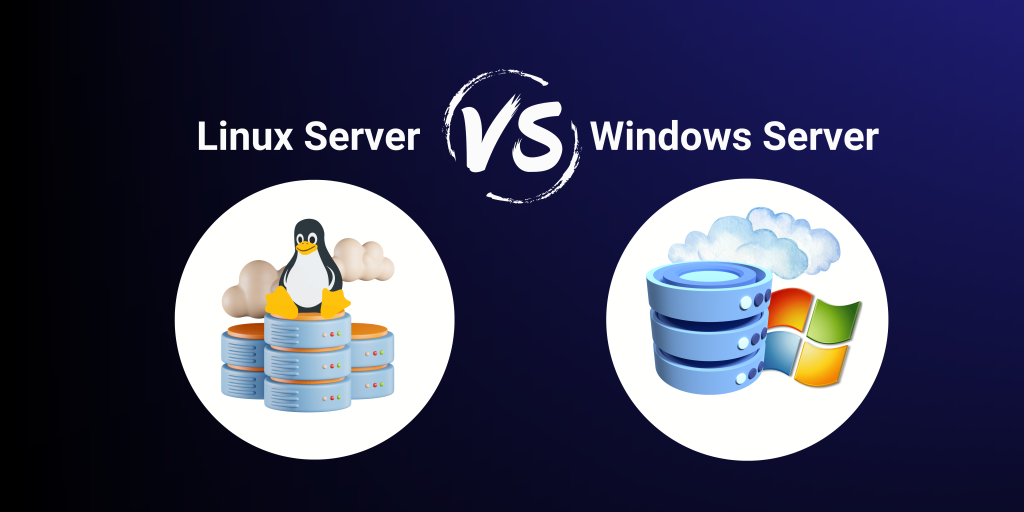Linux Hosting or Windows Hosting

Choosing the right hosting platform is a crucial decision for anyone who wants to launch a website. Linux and Windows are two dominant operating systems that power web hosting services, each with its own set of advantages and considerations. We will delve into the key differences between Linux hosting and Windows hosting, to help you make an informed decision based on your specific needs.
1. Operating System Overview
1.1 Linux Hosting
Linux is an open-source, Unix-like operating system that is known for its stability, security, and flexibility. It supports a wide range of programming languages, making it a popular choice for developers. Common scripting languages like PHP, Perl, and Python seamlessly integrate with Linux hosting environments.
1.2 Windows Hosting
Windows, developed by Microsoft, is another widely used operating system. Windows hosting is specifically designed to support applications and technologies developed on Microsoft platforms. It is compatible with ASP.NET, .NET, and other Microsoft technologies, making it a preferred choice for developers working with these frameworks.
2. Compatibility and Development Tools
2.1 Linux Hosting
Linux hosting is compatible with a wide range of open-source technologies. If your website relies on PHP, MySQL, or Apache, Linux hosting is the natural choice. Additionally, Linux supports popular content management systems (CMS) like WordPress, Joomla, and Drupal.
2.2 Windows Hosting
If you have developed a website using Microsoft technologies such as ASP.NET, MSSQL, or other Microsoft-specific tools, then Windows hosting is essential for you. It provides an ideal platform that integrates seamlessly with Visual Studio and offers a supportive environment for .NET applications. Therefore, if you want to ensure the smooth functioning of your website, Windows hosting is the way to go.
3. Security and Stability
3.1 Linux Hosting
Linux is known for its robust security features. The open-source nature of Linux allows the community to actively identify and address vulnerabilities promptly. Linux hosting environments are generally considered more secure and less susceptible to malware and hacking attempts.
3.2 Windows Hosting
Although Windows hosting has improved its security measures over the years, Linux still holds an edge in terms of overall security. Regular updates and security patches are crucial for maintaining a secure Windows hosting environment.
4. Cost Considerations
4.1 Linux Hosting
Linux hosting is a cost-effective option for businesses as it is open-source, which means that many of the associated software and tools are also open-source.
4.2 Windows Hosting
Windows hosting may come with additional licensing fees, which can contribute to higher overall costs. However, for websites that specifically require Windows technologies, the investment may be justified.
5. Scalability and Performance
5.1 Linux Hosting
Linux is known for its scalability and efficiency, making it a preferred choice for high-performance websites and applications. The lightweight nature of Linux ensures optimal resource utilization.
5.2 Windows Hosting
Windows hosting can also offer excellent performance, especially for applications developed on the Microsoft stack. However, it may have slightly higher resource requirements compared to Linux.
Conclusion
When it comes to choosing between Linux and Windows hosting, there is no one-size-fits-all solution. Your decision should be based on your website’s specific requirements, the technologies you plan to use, and your budget constraints. By understanding the differences outlined in this guide, you will be able to make an informed decision and ensure that your hosting platform aligns seamlessly with your website’s goals and functionalities.







